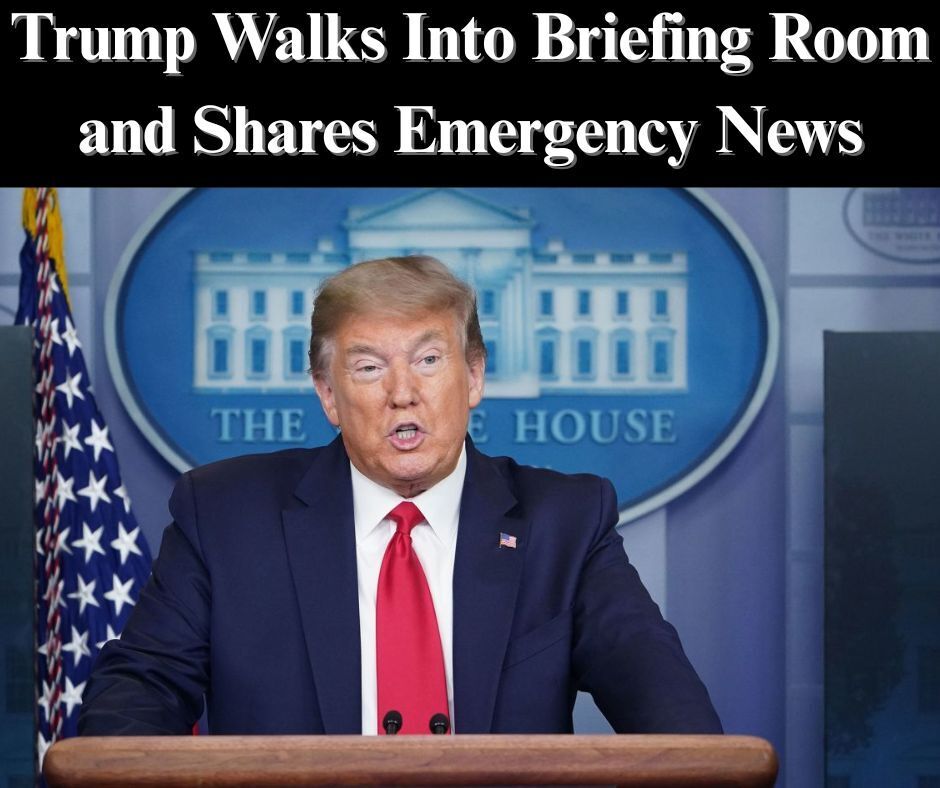President Donald Trump is celebrating a major win at the U.S. Supreme Court.
During a press briefing at the White House on Friday, the president responded after the Supreme Court handed a decisive win in Trump’s fight to prevent lower courts from issuing worldwide injunctions, which had overturned many of his administration’s executive orders and acts.
“I was elected on a historic mandate…It was a grave threat to democracy…these judges have attempted to dictate the law for the entire nation. I’m grateful to the Supreme Court for stepping in and solving this complex problem,” Trump said.
“Our country should be very proud of the Supreme Court today,” the president added while being flanked by Attorney General Pam Bondi and Deputy Attorney General Todd Blanche.
Trump declared that the administration will now run full steam ahead to fully ban birthright citizenship following the Supreme Court ruling.
“That was meant for the babies of slaves, not meant for people trying to scam the system and come into the country on vacation. Hundreds of thousands of people are pouring into our country under birthright citizenship, and it wasn’t meant for that reason. It was meant for babies of slaves,” Trump added.
WATCH:
Justices voted 6-3 to enable lower courts to grant injunctions only in limited circumstances, leaving unresolved the question of how the finding would apply to the birthright citizenship decree at the center of the dispute.
The Supreme Court decided this year to hear three merged cases involving so-called universal injunctions issued by federal district judges in Maryland, Massachusetts, and Washington state. Judges in those districts had halted Trump’s countrywide ban on birthright citizenship, which the government contended was excessively broad in its Supreme Court appeal.
The Supreme Court’s arguments in May focused little on the merits of the global injunctions, and the court clarified on Friday that it will not rule on whether the birthright citizenship decrees are constitutional.
Instead, it instructed the lower courts to “move expeditiously to ensure that, with respect to each plaintiff, the injunctions comport with this rule and otherwise comply with principles of equity.”
They also stayed any enforcement of the orders from taking effect for 30 days.
“The applications do not raise — and thus we do not address — the question whether the Executive Order violates the Citizenship Clause or Nationality Act,” Justice Amy Coney Barrett said, writing for the majority. “The issue before us is one of remedy: whether, under the Judiciary Act of 1789, federal courts have equitable authority to issue universal injunctions.”
“A universal injunction can be justified only as an exercise of equitable authority, yet Congress has granted federal courts no such power,” she added.
Justices Sonia Sotomayor, Elana Kagan, and Ketanji Brown Jackson dissented in the case.
In April, the Supreme Court decided to hear the merged cases, which centered on three lower court judges from Maryland, Massachusetts, and Washington state who granted “universal” injunctions against Trump’s birthright citizenship executive order.
But it was not the primary subject of the appeal or the May 15 oral arguments before the Supreme Court.
Rather, the justices debated whether lower courts should have the jurisdiction to issue national injunctions at all, or whether doing so goes beyond their authority, as Trump administration claimed.
The decision is anticipated to have far-reaching consequences for US district courts, coming at a time when presidents, including both Democratic and Republican administrations, have attempted to utilize executive orders to circumvent a sluggish, slow-moving Congress.
“Even the Birthright Citizenship Hoax has been, indirectly, hit hard. It had to do with the babies of slaves (same year!), not the SCAMMING of our Immigration process,” he said on Truth Social. “Congratulations to Attorney General Pam Bondi, Solicitor General John Sauer, and the entire DOJ.”
